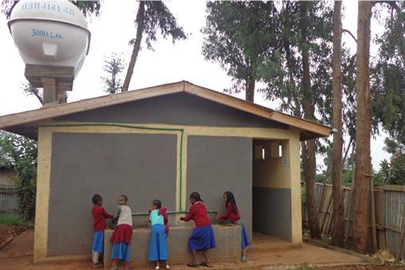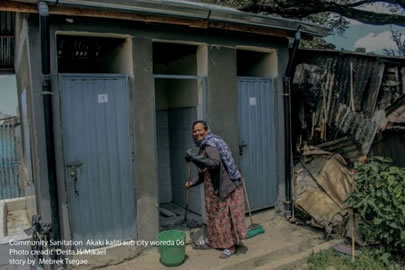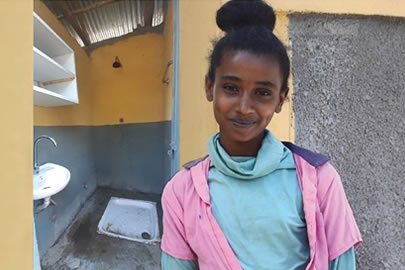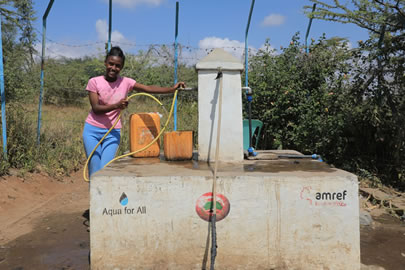

The urban population of Ethiopia is projected to triple from 15.2 million in 2012 to 42.3 million in 2037.[1] Today, five million urban residents are without basic or safely managed water supply, about 20 million without basic or safely managed sanitation, and experiencing poor hygiene.[2] Only 76% of the health facilities in urban areas have access to basic water service and only 66% have access to basic sanitation service.[3] The improper disposal of solid waste results in contaminated ground water.
Additionally, there are significant disparities among residents living in semi-urban or slum areas with little or no access to WASH services. This often results in increased prevalence of communicable diseases and also contributes to poor school attendance among girls. The ever-increasing urban population is pushing poor urban residents and new comers into slums and semi-urban areas where access to basic WASH services is very low.
Our urban WASH approach aims to improve WASH outcomes for those most in need through comprehensive approach to WASH. We implement a strategy that thinks beyond WASH service provision alone, but rather targets root causes and environmental factors including poverty.
[1] ICPS-Population-Projection-2007-2037-Produced-in-2012
[2] Joint Monitoring Programme for Water Supply, Sanitation and Hygiene, updated 2020
[3] WHO-UNICEF-2020-wash-in-hcf










